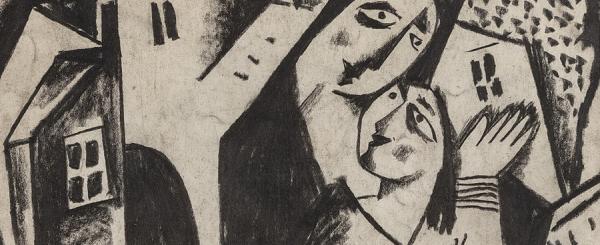
Béla Kádár was born in Hungary in 1877. Amongst his early interests was mural painting.
Like many of the artists of his day he was drawn to Paris and Berlin, and by 1910 he had visited both cities twice. In 1923, Kádár showed his paintings in Berlin at the invitation of Herwath Walden.
Walden was an important figure in the German avant-garde, being the publisher of the journal Der Sturm which featured the works of Franz Marc, Paul Klee, Wassily Kandinsky, Marc Chagall and Oskar Kokoschka.
During the group exhibition at Walden's gallery with other artist's of Der Sturm, Kadar met Katherine Dreier whose Societe Anonyme was instrumental in bringing the work of the European avant-garde to New York.
With her help two major exhibitions of his work were planned for the Brooklyn Museum of Art, the second of which in September 1928 Kádár travelled from Europe to attend.
Béla Kádár incorporated themes of Hungarian folklore and peasant life into his art.
His painting style reflected many of the artistic movements of the early part of the 20th century including expressionism, constructivism and cubo-futurism.
He died in 1956.
